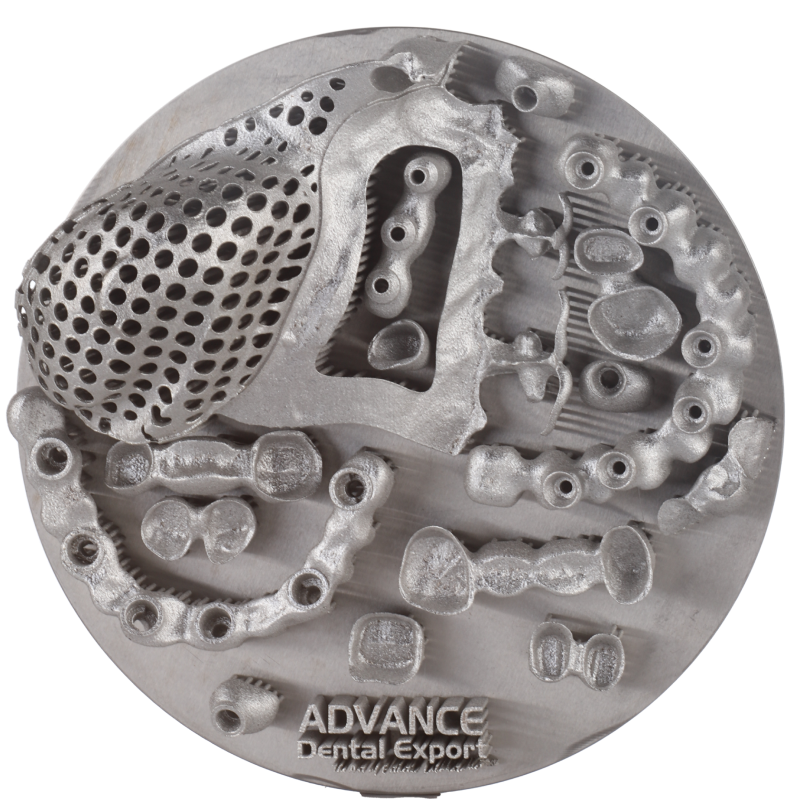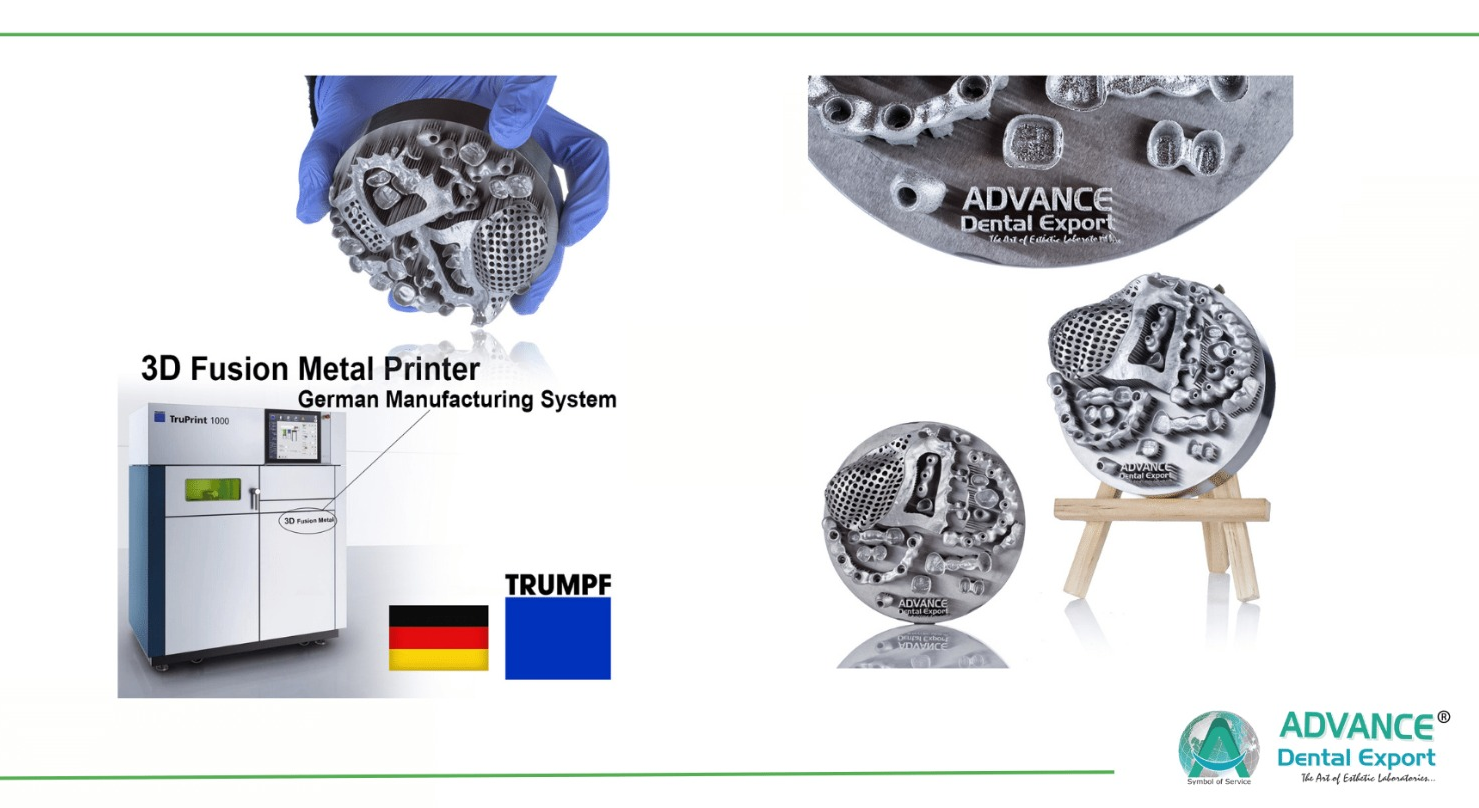
Learn how long PFM crowns last, what is average lifespan of PFM crown, and proper maintenance care. Also explore when should you replace a PFM crown.


In dental practice, reliable materials are required for strong and aesthetic tooth restoration. Porcelain fused to metal (PFM crown) is a high-quality and trusted dental solution. This metal-ceramic restoration combines the unparalleled strength of metal with the natural beauty of porcelain. Ideal for a variety of clinical needs, PFM crowns ensure patients long-lasting functionality and a confident smile. Learn more about the features of the PFM crown and its clinical benefits.
The full form of PFM is porcelain fused to metal. It is a type of dental crown that is used to restore damaged, broken, or decayed teeth. PFM crowns combine a metal base with a porcelain overlay, offering durability for molars and natural aesthetics. The two main ingredients of the PFM crown are:
The metal framework of a PFM porcelain crown can be made from different metals, such as:
Porcelain is used to cover the metal base and give the tooth a natural appearance. This porcelain is a glass-based ceramic material and is applied in layers.
These porcelain teeth caps are a versatile and widely used solution in fixed prosthetics due to their unique combination of strength and aesthetic properties. Its clinical applications are as follows:
Porcelain fused to metal crowns are an excellent choice for restoring damaged, severely decayed, broken, or weakened teeth. Especially for posterior teeth, where chewing pressure is high, PFM crowns are preferred due to their exceptional strength and durability. They completely cover the tooth and protect it from future damage.
PFM technology is widely used in making dental bridges to replace one or more missing teeth. In PFM bridges, the metal framework provides the necessary mechanical strength to the bridge, while the porcelain provides the aesthetic appearance. Its strength also makes it a reliable option for long-term bridges.
When patients have dental implants, PFM crowns can be used to place a crown or bridge over the implant. The strong metal base of the PFM crown is highly suitable for withstanding the chewing pressure exerted on the implant, ensuring the long-term stability of the restoration.
When there are significant defects in the shape, size, or color of the natural teeth, PFM crowns are effectively used to improve the aesthetic appearance of the teeth. The desired shade and shape can be given by the porcelain layer.
Teeth that have undergone root canal treatment are weak and prone to breakage. PFM crowns are an ideal solution to strengthen and protect such teeth, protecting them from breakage caused by chewing pressure.
Thus, PFM crowns provide dental practitioners with a reliable and time-tested option to provide patients with strong, functional, and aesthetically satisfying results in a variety of clinical situations.
Porcelain teeth are custom-made restorations crafted using advanced techniques to prioritize aesthetics and durability. Materials like feldspathic porcelain mimic natural translucency and strength. Proper care, including regular cleaning and dental check-ups, ensures their longevity. These restorations are tailored to match individual dental anatomy, providing a lifelike appearance.
Preparation involves reducing the tooth structure to accommodate both metal and porcelain layers. Standard dimensions require 1.5–2mm occlusal reduction and 1–1.5mm axial reduction for optimal fit. The process typically takes 1–2 hours, depending on complexity. Precise shaping ensures retention and aesthetic alignment, with the metal framework providing structural support.
Considering the quality, durability, and aesthetic benefits of PFM crowns, their cost remains an important factor.
While porcelain crowns offer a good balance of strength and aesthetics at a relatively affordable price compared to all-ceramic or zirconia crowns, it is best for the patient to always consult their dentist to get an accurate estimate based on their specific needs and chosen material.
The exact cost of a PFM crown depends on many factors, such as the type of metal used (noble versus base metal alloy), the complexity of the clinical case, the specifics of the lab work required, and local market rates.
The average cost of a PFM (Porcelain-Fused-to-Metal) crown in India usually ranges from ₹8,000 to ₹20,000 per tooth.
At ADE, we never compromise on quality, yet strive to keep our PFM crown solutions affordable. We believe that the best dental care should be accessible. To get detailed information about the cost of a PFM crown for your specific case, contact us now. After understanding the needs of your clinical case, our expert team will provide you with the most appropriate and transparent cost estimate.
The “best” crown for a tooth is different for each person, as it depends on factors such as tooth location (front or back teeth), aesthetic needs, chewing ability, budget, and whether the patient has metal allergies. For example, a natural-looking zirconia or all-ceramic crown is preferred for front teeth, while a stronger material such as a PFM or metal crown is best for back teeth. Your dentist can recommend the most appropriate crown for you based on your dental condition and individual needs.
With proper care and maintenance, PFM crowns can typically last 10 to 15 years. In some cases, they can last 20 years or more. Lifespan depends on factors such as dental hygiene, biting habits, and the quality of the crown.
Zirconia and PFM (porcelain-fused-to-metal) are both popular options for dental crowns, but their choice depends on clinical needs and patient expectations. Zirconia crowns have a low risk of allergies due to their exceptional strength, excellent aesthetic appearance (transparency similar to natural teeth), and being metal-free, making them ideal for anterior teeth and cases with high aesthetic demands. PFM crowns, on the other hand, offer good strength and durability due to their metal base, and can be more cost-effective than zirconia. However, they may have the issue of visible metal lines and reduced translucency. Therefore, PFM is a good option for posterior teeth where strength and budget are important, while zirconia offers a more natural appearance and unparalleled strength.
The average cost of a PFM crown in India ranges from ₹8,000 to ₹20,000 per tooth (as of May 2025). This cost depends on factors such as the type of metal (noble/base metal), location of the clinic, experience of the dentist, and complexity of the case.
A PFM crown stands for Porcelain Fused to Metal crown. This is a type of dental crown in which the inner part is made of a strong metal (such as gold, palladium, or nickel-chromium) and overlaid with porcelain (ceramic) that matches the natural color of the tooth. This provides both strength and a natural appearance.